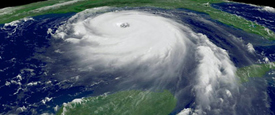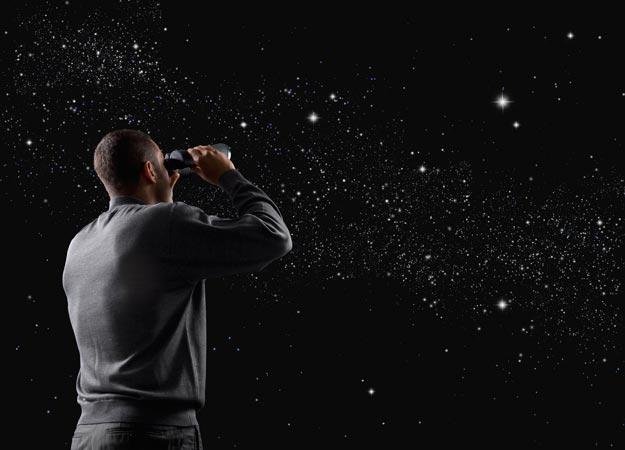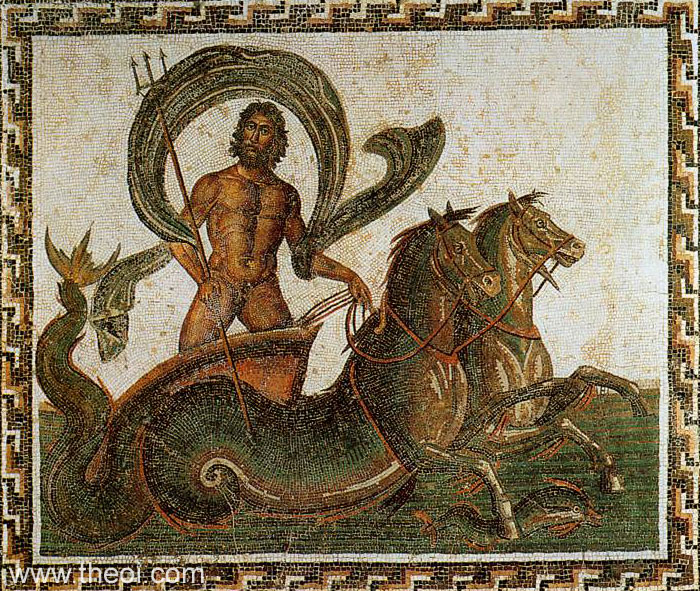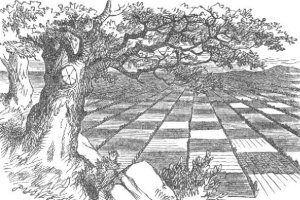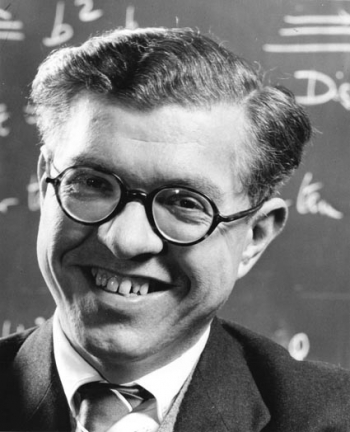

|
The premise of scarcity creates a culture driven by fear. That puts us in a perpetual state of feeling we’re in competition over crumbs — creating a spiral that intensifies, as everyone feels that they have to get theirs before it all runs out. The message of “hitting the limits” is especially scary for people who are just at the edge of survival themselves, which is the case for most people on Earth. I’m very sensitive to messages that make people feel more fearful. That’s one reason why I love the Center for Ecoliteracy and the work you do. You know that beauty opens people up and reduces fear and that people learn to trust themselves through working with the Earth itself and exploratory learning. I also don’t like saying that growth is the problem, because for most people, growth is really positive. You love it when your grandchildren grow, your love grows, your flowers grow. We should not bless what we’re doing now with the term “growth.” We should call it what it is, an economy of waste and destruction. So the reframe I'm asking all to consider, which you’re living at the Center for Ecoliteracy, is a shift from assuming that the problem is that we’ve hit the limits to recognizing this: the global crisis is that our human-made systems are perversely misaligned, both with human nature and the wider nature. The challenge is not, “How do we pull back?" but, "How do we remake our human-made systems to align positively with what we know creates sustainable and resilient communities?” — from an interview with Frances Moore Lappe |
1 June 2015
|
||
|
The youth of humanity all around our planet are intuitively revolting from all sovereignties and ideologies. The youth of Earth are moving intuitively toward an utterly classless, raceless, omnicooperative, omniworld humanity. — Buckminister Fuller |
2 June 2015
|
||
|
The Paradoxical Theory of Change
Change occurs when one becomes what one is, not when one tries to become what one is not. Change does not take place through a coercive attempt by the individual or by another person to change oneself. It does take place if one takes the time and effort to be what one is. Nor does change occur via insight, interpretation, or belief. Rather, change can occur when a person abandons what s/he would like to become and attempts to be where s/he is. By remaining alert in the center, we can acquire a creative ability of seeing both sides of an occurrence and [of] completing an incomplete half. By avoiding a one-sided outlook, we gain a much deeper insight to the structure and function of the organism. – Fritz Perls |
3 June 2015
|
||
|
Curiosity πάντες ἄνθρωποι τοῦ εἰδέναι ὀρέγονται φύσει. So it’s not just me. And it’s not an appurtenance of modern culture, or of The Scientific Age, or the Enlightenment. Knowledge provides the basis for planning and can help us provide for our future security. An evolutionary psychologist might explain my thirst for knowledge on this basis, but it wouldn’t ring true. Desire for knowledge and understanding is a part of me that seems just as basic as the need for food and company, or the need to love and be loved. I want to know where I came from and what will become of me. I want to know the relationship between my awareness and my physical brain. I want to know about the univerise I live in, where it came from, why it seems so finely-tuned for the possibility of life, as if life were pre-arranged at the Big Bang. I want to know if the Universe is homogenous and isotropic, or whether it has angular momentum and fractal, hierarchical clustering. I want to know how evolution has managed to travel so far in a scant 4 billion years. I want to know how cold fusion works, and whether Earth has been visited by aliens… — JJM Adam traded his immortality for knowledge. |
4 June 2015
|
||
|
Litany O you gods, you long-limbed animals, you — Rebecca Lindenberg |
5 June 2015
|
||
|
Multitasking Wouldn’t it be great if it didn’t take any time to exercise. You could get it done during your morning commute—say instead of waiting in traffic. While we’re dreaming, it would be nice if it cost less than zero to do this, and maybe you could do your bit to relieve global warming, without taking any time… |
6 June 2015
|
||
|
How I Came to Be Where I Am I did not wander off the map. I followed directions meticulously, and found myself in this rabbit hole. — Josh Mitteldorf |
7 June 2015
|
||
|
An Augury of Birds It wasn’t only his lifelong passion for Clara—Schumann cared deeply about music and people and ideas. He lived on the edge of caring too much, struggled with a crippling depression and succumbed to it at age 39. Meanwhile, his most moving music is on the edge of chaos. Listen to L’Oiseau Prophète from Forest Scenes, Op 82 for piano solo. Robert Schumann was born on this day in 1810. |
8 June 2015
|
||
|
‘If the doors of perception were cleansed, everything would appear to man as it is—infinite.’ — Milton Exuberance is beauty…men forget that All deities reside in the human breast. |
9 June 2015
|
||
|
Love as Destiny Somewhere there waiteth in this world of ours — Edwin Arnold, born this day in 1832 |
10 June 2015
|
||
|
Change The voice which I did more esteem — George Wither, born this day in 1588 |
11 June 2015
|
||
|
Boredom is the soil in which creativity can take root. Is boredom merely a state of understimulation? 100 years ago, or 1000, when there was so much more sameness and drudge work, so much less diversion and entertainment, were people more bored or less? Is understimulation hurtful in itself? Or perhaps has the emptiness and isolation of modern life created a deep anxiety, from which we feel we need to distract ourselves—but what, then, do we really need? –JJM Read Tosin Thompson’s take on boredom in the New Statesman. |
12 June 2015 |
||
|
Consciousness is shaped by brain activity, but the core of consciousness has an existence independent of physical matter. “During my seven days of coma I not only remained fully conscious but journeyed to a stunning world of beauty and peace and unconditional love—I underwent the most staggering experience of my life, my consciousness traveling to another level.” Dr Alexander is now on a mission to convince the brain science community to graduate from kindergarten and move on from the idea that the brain creates its own consciousness. |
13 June 2015
|
||
|
The enlightenment that you seek is not an experience. It is a new vantage from which to experience all else. It is a commitment to view your experience from a radically different vantage. To this extent, it is a matter of volition. — Josh Mitteldorf |
14 June 2015
|
||
|
800 Years of the Magna Carta On this day in 1215, subjects of King John drew a line in the sand and established limits to the divine right of kings. The king may not throw anyone into prison at will, nor tax arbitrarily. Laws come from parliament, not from the king. These principles had a good, long run, until the emergence of the Axis of Evil in the 21st Century made it obviously inadvisible that people should have a fair trial, or that the rights of Presidents should be limited by law. Each generation since 1215 has inherited the rights of the Magna Carta, expanded and passed them to their children. Except that my generation has seen the wisdom in authorizing the Gummint to protect our freedoms by taking them away. — read more from Paul Craig Roberts |
15 June 2015
|
||
|
Greatest Pleasure The ancient Greeks saw Nature sexualized What can we learn from those for whom physics itself is sensual? |
16 June 2015
|
||
|
44 years ago today “A cantankerous press, an obstinate press, a ubiquitous press must be suffered by those in authority in order to preserve the even greater values of freedom of expression and the right of the people to know.” — Judge Murray Gurfein, Pentagon Papers case, June 17, 1971 |
17 June 2015
|
||
|
By the Sea
— George Essex Evans, born this day in 1863 |
18 June 2015
|
||
|
Look it’s really simple, transmutation in consciousness occurs as a consequence of a sacred contract between the living. The Sage broadcasts non-specificity and if you’re lucky enough to feel it you will fall in love and that love is of sufficient potency to get you over the hump of your innate ontological fear of non-existence. This does not happen with dead Gurus so drop your feigned devotion to Ramana Maharshi and Ramakrishna and Nisargadatta and whomever you pledge loyalty to, because they will fail to assist you. The bloom of experience and all that appears in it is not a stage production in time. The genesis and irrefutability of experiencing is an autopoiesis or gestalt of the entirety of consciousness, the inseparable and euphoric presence of God. Reporting upon it through hypotheticalism or anecdotal hysteria or by virtue of events that happened to me is a form of self-hypnosis and this bloom, which does not actually convey a condition, can seem to imply implication - which turns out to be the mechanism of individuation and continuity, commonly known as suffering. Pride in our ideas and spiritual accomplishments is an unavoidable symptom of a clown taking a bow for reality. We think that this is about something, that demonstrative God Realizers are inspirational or useful somehow - they’re not. You can’t avoid them, they seem to pop up here and there and everyone makes a big fuss about them, but their samadhis and far-away looks do more to confuse you than to reveal how dialed back self-realization can be. Once we invest in implication on account of the non-stop profusion of bloom, we’re in space and time as an experiencer hankering for relevancy, spiritual destination, and security of one kind or another. Realization is exactly what this already is and has never been otherwise; bloom and implication make it appear as if something is in the way. Nothing is in the way. — NightSky Sangha |
19 June 2015
|
||
|
Driverless cars coming soon There was a rumor that Tesla would come out with an autopilot system in its cars this summer. Not just yet. But some say as soon as 2016. Driverless cars are already safer and more efficient than average American drivers. Some argue they are safer than elite, expert drivers. “We’ve done a survey that shows that about 25 percent of vehicle owners in the U.S. would give up their cars in exchange for a car share service,” [Thilo] Koslowski said, arguing that society is more than ready for a seismic shift in how we get around. “I’ve predicted that by 2016, there will be at least three companies launching self-driving car services. There may even come a day, I think it will happen, when driverless cars ‘own’ themselves, upgrade and repair themselves, and more.” — read more at PC Magazine |
20 June 2015
|
||
|
From words to poetry Deliver us from success to perfection — Josh Mitteldorf O Lord who creates in each moment the perfection of the world, |
21 June 2015
|
||
|
Roots Our world still holds a (small and vanishing) place for human cultures untouched by modernity. There are a handful of tribes in Peru and Brazil that live hunter/gatherer life styles without modern tools, and with practices and cultures that reflect a time before metal smelting and the wheel. Of course, they suffer from ailments like pneumonia that don’t bother us. Many people are tempted to regard them as unfortunate and left behind, to want to educate them and rescue them from their suffering Perhaps we can learn about them. Perhaps we should preserve them as a living museum. Or a more radical view: Perhaps they have as much or more to teach us as we have to teach them. Perhaps they can help us to glimpse a unique path back to our essence, our tribal souls. Perhaps they live in a world that is magical and never lonely, a world we have forgotten how to imagine. — Science Magazine article by Andrew Lawler |
22 June 2015
|
||
|
A Proof of the Impossibility of Ants We will now consider what an ant can do. First, it can walk. If you think this is no great shucks, talk to a robotics engineer with a cable-connected supercomputer. Ask him how easy it is to make six legs with multiple joints each work together while climbing over things. If you think about the amount of sensory feedback necessary to know where these legs are at a given moment, and what the pressures and angles are, you will get dizzy. The ant does it effortlessly, with about as many brain cells as a congressman has IQ points. This would suggest perhaps three brain cells. For the record, ants have 250,000 neurons. People have 20 billion. Elephants half that. |
23 June 2015
|
||
|
Fred Hoyle He is best known as a lifelong skeptic of the Big Bang theory, which became canon, for good reasons and bad, during the 2nd half of the 20th Century. So far, at least, it seems he got that one wrong. But Fred was in many respects one of the most innovative and independent thinkers about The Big Picture in a golden age of astronomy. Where do the chemical elements come from? This was the topic that Hoyle addressed as a young man, at a time when much less was known about nuclear chemistry than today. He made the first calculations about conditions inside a star after it runs out of hydrogen to ‘burn’ into helium. When a fire runs out of fuel, it gets cold. But Hoyle realized that when a star runs out of fuel, it collapses under its own gravity and gets hotter. The extra heat allows nuclear reactions that lead to elements heavier than helium. Hoyle demonstrated how all the chemical elements other than hydrogen and helium have been created inside ‘old’ stars that have exhausted their hydrogen fuel. He figured out that two He atoms could never come together to form element #4 (berylium). He figured out that, since element #6 is very common (carbon) there must be some special circumstance that allows THREE heliums to come together to make carbon, and on that basis he predicted a nuclear resonance that was later discovered experimentally. He figured out that iron is the equilibrium endpoint of nucleosynthesis, and that is why iron is so common on earth and elsewhere. And he figured out that all the elements heavier than iron cannot be made in a normal old star, but must get made in the explosive environment of a supernova. All of these insights came from Hoyle’s youth, at a time when nuclear chemistry was also a young science, and they have stood the test of time. Hoyle was also a prolific and imaginative science fiction writer, with dozens of titles, some of which are still read today. He eschewed space operas with their melodrama and canned plots, and instead used SciFi to explore speculative scientific ideas that are just beyond the edge of what we might embody as fleshed-out scientific theories. His first SciFi book was The Black Cloud which comes from the insight that sentient life could take forms unrecognizable to beings that are bags of carbon-based chemicals dissolved in water. Life may have first arisen within nebulous gas clouds extending over vast regions of space. An interstellar cloud might be a living entity, and in fact might be far and away the most common living entity—perhaps the condensed, chemical forms of life on earth are the exception, evolved much later. Hoyle wrote scientific articles, as well as sci fi, about the origin of life, and (to his credit I believe) acknowledged, as few scientists do, how difficult it is to imagine life getting started from non-living matter on earth. He became one of the earliest proponents of the idea of panspermia: that life is everywhere in the universe, carried across vast distances by bacterial spores that can survive on space rocks for millions of years, and fall to earth (and other planets) as meteorites. Panspermia has not been proved or disproved, but the idea has survived the test of time as a viable view of life’s progeny. — Today would have been Fred Hoyle’s 100th birthday. |
24 June 2015
|
||
|
Workers of the world More importantly, workers are winning, with many strikers capturing large wage increases above and beyond any legal requirements. — read more from China In Revolt, by Eli Friedman |
25 June 2015
|
||
|
I like to be little I like to skip when I’m glad. Grownups don’t skip when they’re glad. — Charlotte Zolotow was born 100 years ago today. |
26 June 2015
|
||
|
Radical, Revolutionary, and Eternal Optimist A world dominated by America and driven by cheap oil, easy credit, and conspicuous consumption is unraveling before our eyes. Drawing from seven decades of movement-building experience, Grace Lee Boggs shows how to create the radical social change we need to confront new realities. From her home in Detroit, she reveals how hope and creativity are overcoming despair and decay within the most devastated urban communities. — Grace Lee Boggs is still kicking ass on her hundredth birhday When I became a radical nearly seventy years ago, we ran the ‘risk of seeming ridiculous,’ |
27 June 2015
|
||
|
Vanity of the Sage What privilege to know that — Josh Mitteldorf |
28 June 2015
|
||
|
“If you want to build a ship, don’t instruct people to collect wood and don’t assign them tasks and work, but rather teach them to long for the endless immensity of the sea” “Si vous voulez construire un navire, ne racolez pas les gens pour rassembler du bois et ne leur assignez pas quelque tâche ou travail, mais plutôt apprenez-leur à désirer ardemment l’immensité infinie de la mer.” — Antoine de St Exupéry, born this day in 1900. |
29 June 2015
|
||
|
On Prayer You ask me how to pray to someone who is not. —Czeslaw Milosz, born this day in 1911 |
30 June 2015
|
||
